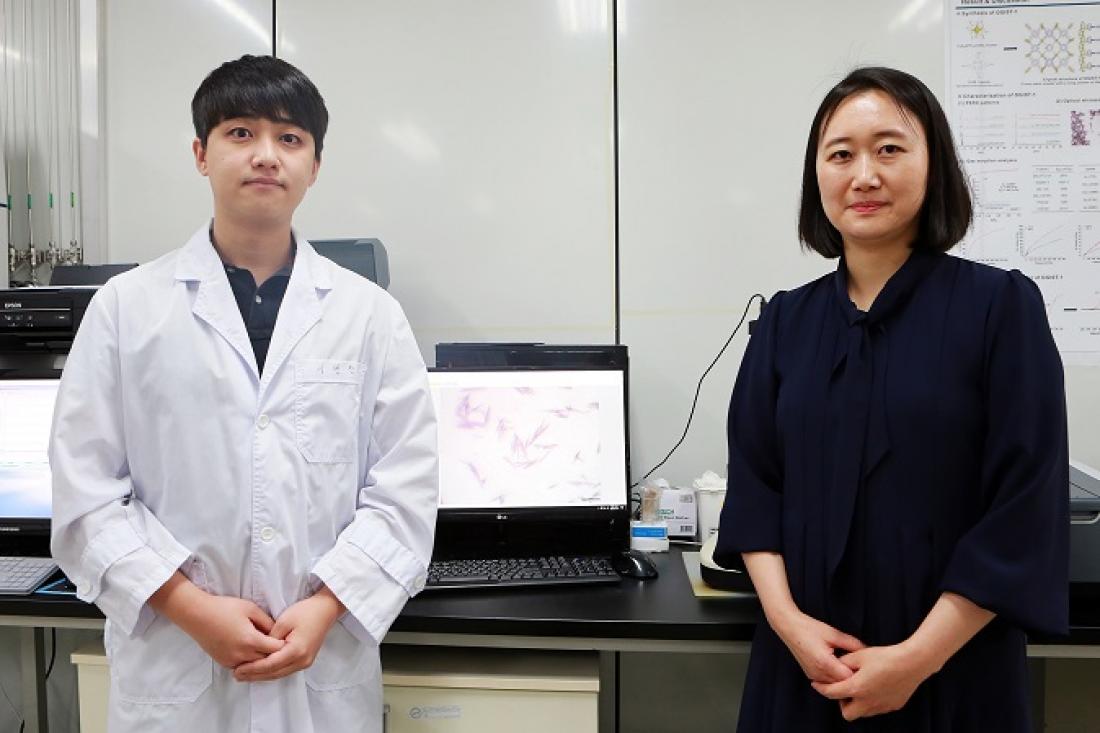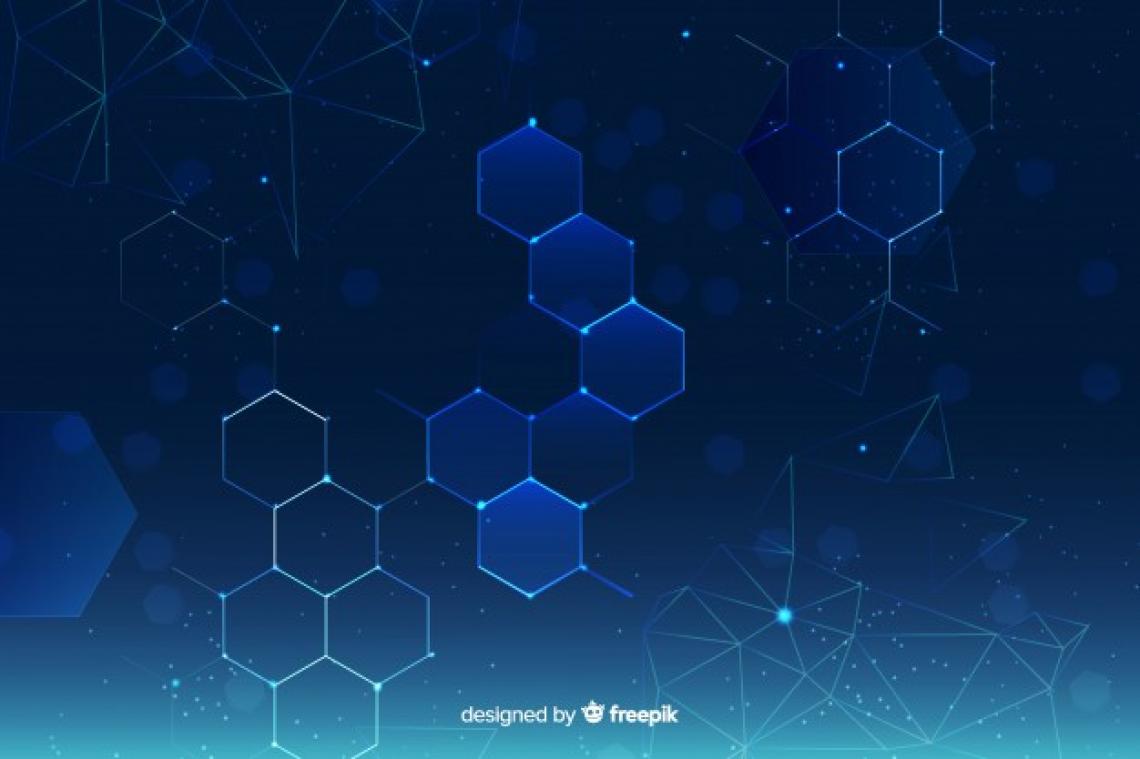Professor Jinhee Park (right) and her student Byeongchan Lee (left) of DGIST
Scientists have devised new methods for the post-synthetic modification of Metal-Organic Frameworks to produce properties in the material ideal for gas manipulation.
Metal-organic frameworks (MOFs) are unique micromaterial compounds consisting of a sponge-like network of metal ions or clusters linked together by organic linkers, and are able to store specific gas molecules in their pores. MOFs have such a high surface area due to their porosity that a single gram of the material has enough surface area to cover the size of a football field!
These super-sponges are used in research and industry to separate and store gases within tailor-made pockets, enabling their use in gas storage, separations, and sensing. Unlike traditional porous materials, MOFs can be modified as per need; in theory, their structure can be controlled through careful selection of the components of the synthesis process. But in practice, this process is challenged by the restricted synthetic conditions and high thermal and chemical sensitivity of MOFs. An attractive alternative is the post-synthetic modification (PSM) of MOFs.
Leading a team of scientists from Daegu Gyeongbuk Institute of Science and Technology (DGIST), Korea, Professor Jinhee Park approached this issue with the dual goals of giving desired functional groups to MOFs and introducing “mesoscopic” (bigger than microscopic) holes, which improve adsorption kinetics. Professor Park shares her convictions, stating, “We believe that this kind of study can facilitate the use of MOFs as a key material in environmental and energy related areas.”
PSM through carbon-carbon bond formation has historically been difficult due to the lack of suitable reaction conditions that maintain the MOF structures. The scientists introduced stable carbon-carbon bonds by converting existing carbon-hydrogen bonds using elevated temperatures and adding “electrophilic organic halides or carbonyl compounds”, allowing simultaneous introduction of the required functional groups as well as the mesoscopic holes.
Professor Park reports, “These results confirm the ability of the dual-PSM protocol to introduce desired alterations in MOFs while generating highly porous mesostructures.” This technique could potentially improve the safety of workers in enclosed, gas-filled environments such as in the nuclear industry, and provide a more economically viable method of gas storage and purification.
References
|
Authors: |
Byeongchan Lee, Dohyun Moon,* and Jinhee Park* |
|
Title of original paper: |
Microscopic and Mesoscopic Dual-Post-Synthetic Modifications of Metal-Organic Frameworks |
|
Journal: |
|
|
DOI: |
10.1002/anie.20200027 |
|
Affiliations: |
None provided None provided |
*Corresponding author’s email: [email protected]
[email protected]
About Daegu Gyeongbuk Institute of Science and Technology (DGIST)
Daegu Gyeongbuk Institute of Science and Technology (DGIST) is a well-known and respected research institute located in Daegu, Republic of Korea. Established in 2004 by the Korean Government, the main aim of DGIST is to promote national science and technology, as well as to boost the local economy.
With a vision of “Changing the world through convergence," DGIST has undertaken a wide range of research in various fields of science and technology. DGIST has embraced a multidisciplinary approach to research and undertaken intensive studies in some of today's most vital fields. DGIST also has state-of-the-art-infrastructure to enable cutting-edge research in materials science, robotics, cognitive sciences, and communication engineering.
Website: https://www.dgist.ac.kr/en/html/sub01/010204.html
About Professor Jinhee Park from DGIST
Dr. Jinhee Park received her Ph.D. in Chemistry (2013) from Texas A&M University under the supervision of Prof. Hong-Cai “Joe” Zhou. After a stint as a senior researcher in the Korea Electrotechnology Research Institute (2013–2015), she is currently an assistant professor in the Department of Emerging Materials Science at Daegu Gyeongbuk Institute of Science and Technology (DGIST). Her current research focuses on design and synthesis of metal-organic frameworks and metal-organic polyhedra for sustainable energy and environment.




